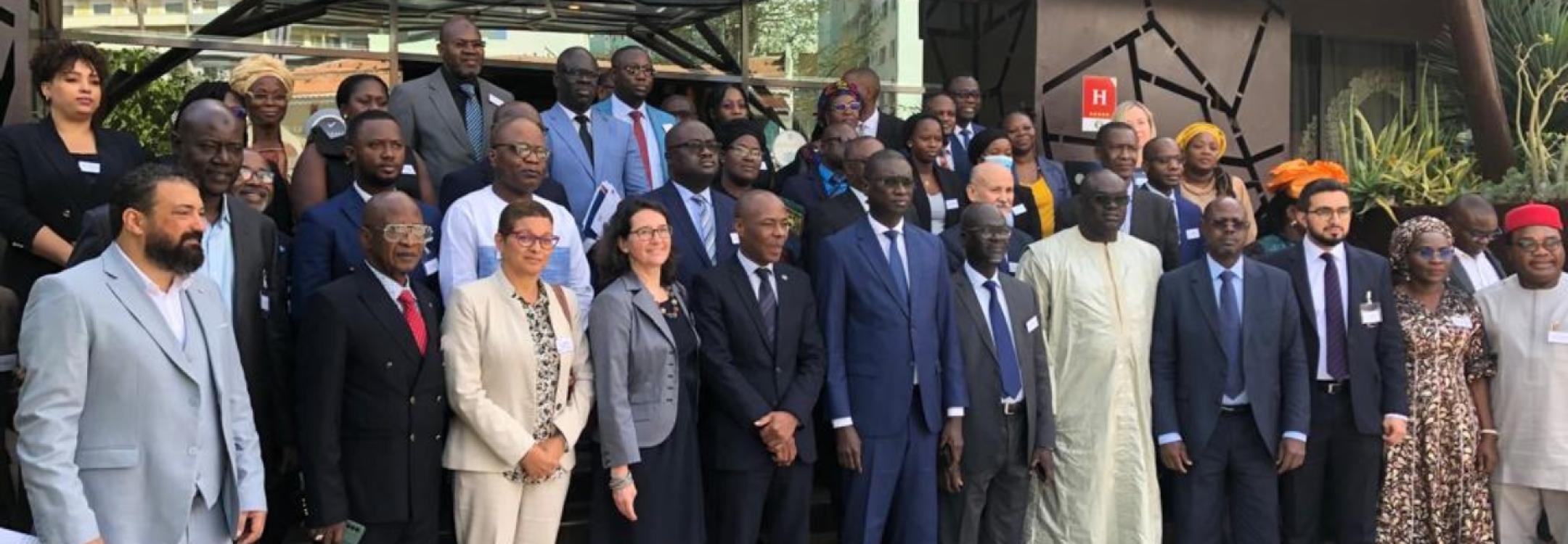
High-level representatives from 16 West African States have renewed their commitment to torture prevention at a Regional Conference marking the 20th anniversary of the Optional Protocol to the Convention against Torture (OPCAT).
Held in Dakar, Senegal, on 17-18 January 2023, speakers highlighted the many practical ways in which the OPCAT supports States to meet their international obligation to prevent torture and ill-treatment.
Since its entry into force, 11 of the 16 West Africa States have ratified the OPCAT. Of these, eight have designated an independent monitoring body, known as a National Preventive Mechanism (NPM).
The Regional Conference brought together high-level participants, including the Minister of Justice of Senegal, Directors for Human Rights from Ministries from West Africa countries, Presidents of NPMs from eight West African States, members of the UN Subcommittee for the Prevention of Torture (SPT) and Committee for the Prevention of Torture in Africa (CPTA), as well as regional and international NGOs.
Participants reflected on the progress that has been made to prevent torture in the region through OPCAT ratification and the designation of NPMs.
“Establishing the NPM has enabled us to have access to all places of detention in Mali. As a result of our work, the authorities understand the importance of torture prevention and know they are being monitored. Today we can say that cases of torture and ill-treatment have decreased in Mali,” said Mr Bouare, President of Mali’s NPM.
These and other examples helped mobilise representatives from States that have not ratified the OPCAT – such as The Gambia, Guinea Conakry, Guinea Bissau and Cote d’Ivoire – to commit to continuing to advocate for ratification, including by joining efforts with national CSOs and regional and international actors.
The Regional Conference was also an opportunity to promote the effective functioning of NPMs.
During his opening speech, Ismaïla Madior, Minister of Justice of Senegal, recalled that "by ratifying the OPCAT, States can show their commitment to the prevention of torture. But the political will must be followed by specific actions: the presence of a strong and functional national mechanism."
Independence, objectivity and impartiality were identified by participants as key characteristics of an effective NPM. Group discussions also allowed participants to exchange good practices:
“We have increased the regularity of visits to all places of deprivation of liberty, invested in the capacity building of NPM members and participated in the training of law enforcement officials. We see the results,” said Ms Morais de Freitas, President of the NPM of Cabo Verde.
Marcus Dakla, from CACIT, a Togolese NGO, highlighted the close cooperation between the NPM and civil society as a good practice: “Civil society organisations are an important source of information. They can also monitor the implementation of the recommendations made by the NPM.”
Participants reflected on challenges for advancing torture prevention in the region, including financial constraints, the rise of terrorism, the existence of secret detention places, and obstacles to reaching remote areas in large countries with difficult geographies.
However, they emphasised that despite these challenges, it is possible to advance torture prevention in the West Africa region by working together and strengthening the torture prevention community.
The Regional Conference provided participants with a platform to commit to ways forward. Commitments included: strengthening cooperation and dialogue with relevant actors, increasing the visibility of the NPM's work with the national population, and participating in the capacity building of law enforcement actors, prison officials and other relevant actors.
“Bringing together all concerned actors is one of the positive outcomes of this conference. We look forward to continuing to develop synergies between West African NPMs. Another positive outcome is the commitment shown by countries that have not ratified the OPCAT to move forward in torture prevention,” said Madiaw Diaw, Observateur National des Lieux de Privation de Liberté.
The Regional Conference was organised by the Office of the High Commissioner for Human Rights (OHCHR), together with the APT and the Senegalese Observateur National des Lieux de Privation de Liberté (ONLPL).
